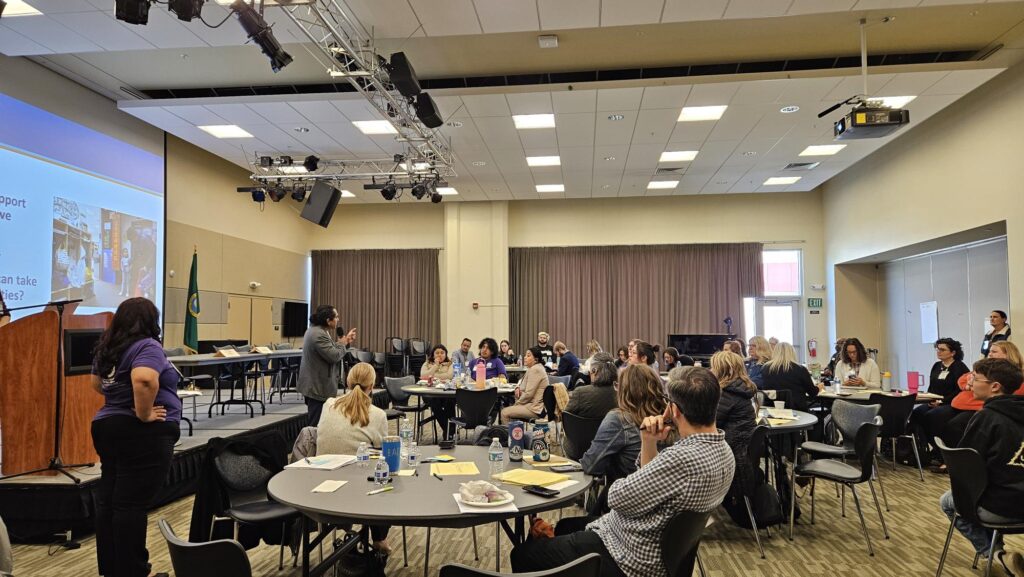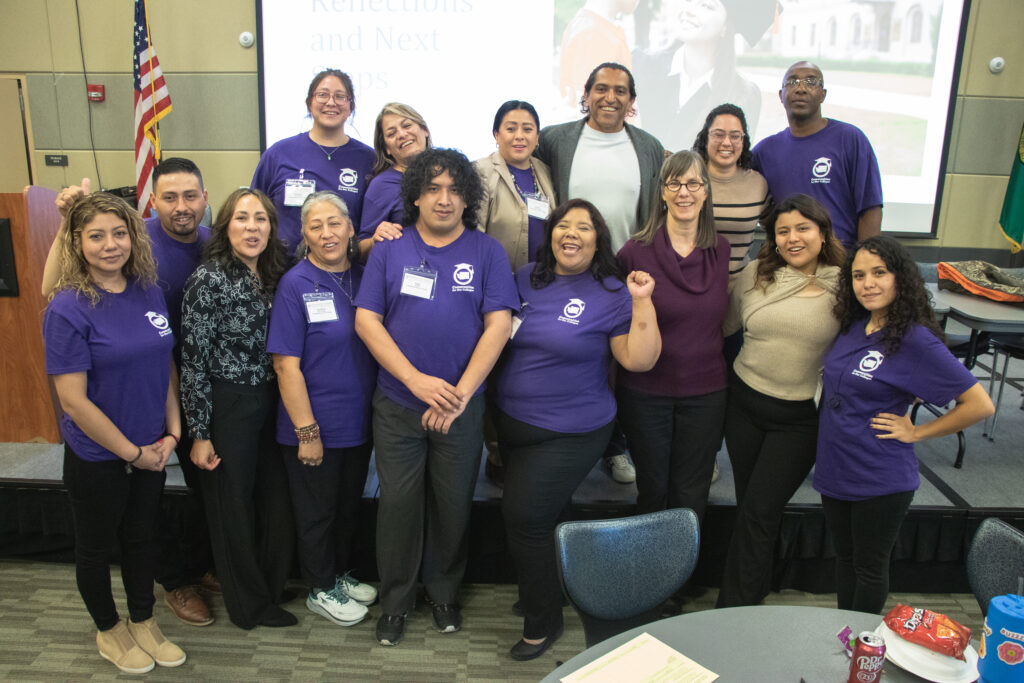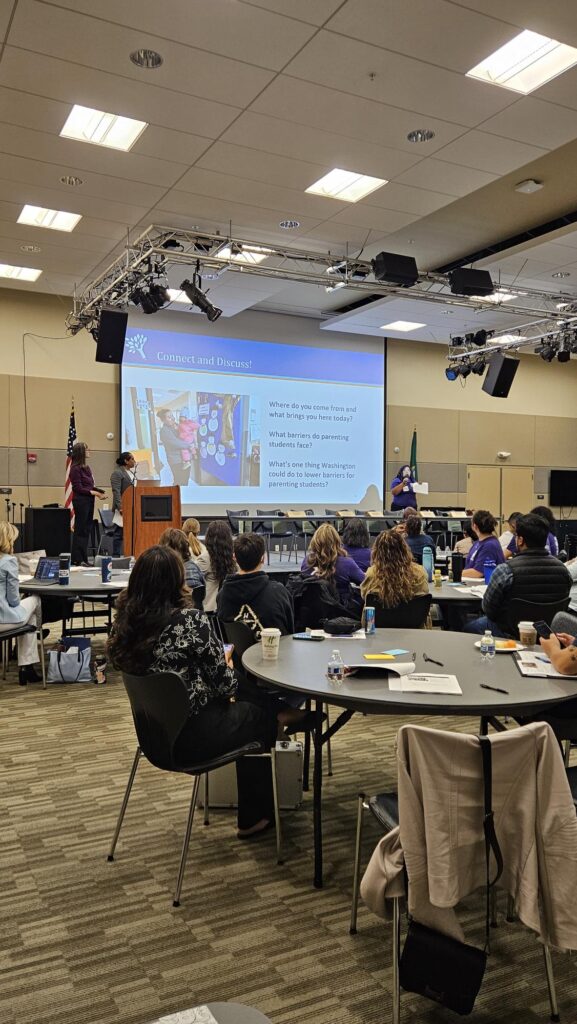Last Friday, Communities for Our Colleges (C4C) co-hosted an engaging strategy session focused on the experiences and needs of parenting students pursuing higher education in Washington State. The event, titled “Advancing Postsecondary Success for Parenting Students in Washington,” brought together students, advocates, and institutional leaders to identify solutions that can make college more accessible and equitable for student parents.

A Collaborative Effort to Center Parenting Students
The convening was co-hosted by the Washington Student Achievement Council (WSAC), Pierce College, the Washington Campus Children’s Center Coalition, and the Washington State Board for Community and Technical Colleges (SBCTC). Together with C4C, these organizations aimed to connect leaders across higher education, early learning, and workforce development to discuss barriers and identify strategies to support parenting learners.
The event drew representatives from across the state — including community and technical colleges, apprenticeship programs, advocacy organizations, and childcare providers. Participants included leaders from Pierce College, The Evergreen State College, Highline College, the Machinists Institute, Chehalis Cornerstone, and numerous community-based organizations and agencies dedicated to family support and student success.
Understanding the Landscape
The day began with a data overview led by Ami Magisos (WSAC), Jennifer Dellinger (SBCTC), and Xochilt Lopez (C4C), grounding participants in the realities faced by parenting students in Washington. Roughly 18% of college students in Washington are parenting, and they are disproportionately low-income, women, and students of color. Research shared during the session revealed that 68% of parenting students experience basic needs insecurity, such as food or housing instability — a figure far higher than the overall student population.

Childcare emerged as one of the most significant barriers. Nearly three in four parenting students who need childcare report it as unaffordable, and nearly half say that childcare hours do not align with their class schedules. Participants discussed how these barriers force many student parents to make impossible choices between caring for their children and continuing their education.
Learning from Local Innovation
A panel moderated by Abby Chien (WSAC) highlighted innovative practices from across the state. Panelists shared how their institutions and communities are responding to the needs of parenting students:
- Pierce College’s Child Development Center serves as a hub for both learning and care, connecting student parents with on-campus resources.
- Evergreen State College has developed flexible campus childcare models and partnerships to sustain affordability.
- Highline College and the Machinists Institute shared examples of how apprenticeships and workforce programs can better support parents through schedule flexibility and integrated family supports.
- Chehalis Cornerstone offered community-based perspectives on how partnerships can expand access to childcare beyond campus walls.
Participants then joined breakout discussions to identify opportunities to replicate or expand such models across the state.
Charting Strategies for Change
In the afternoon, WSAC and SBCTC facilitated sessions on statewide strategies to advance parenting student success. These included:
- Making parenting students visible through data, ensuring they are counted and supported through better tracking systems.
- Reducing administrative burdens, streamlining processes that make it difficult for student parents to access aid or childcare subsidies.
- Investing in success, by expanding funding for childcare access, provider capacity, and basic needs supports.
Next Steps
In the closing session, Communities for Our Colleges facilitated a collective reflection to identify key opportunities and priorities moving forward. Participants emphasized the need for continued collaboration between colleges, state agencies, and community partners — and for policy solutions that ensure parenting students can succeed without sacrificing their families’ wellbeing.

This convening marks an important step in a broader effort to build a more equitable higher education system in Washington. By centering the lived experiences of parenting students, partners across the state are charting a path toward policies and practices that recognize the full humanity — and potential — of student parents.